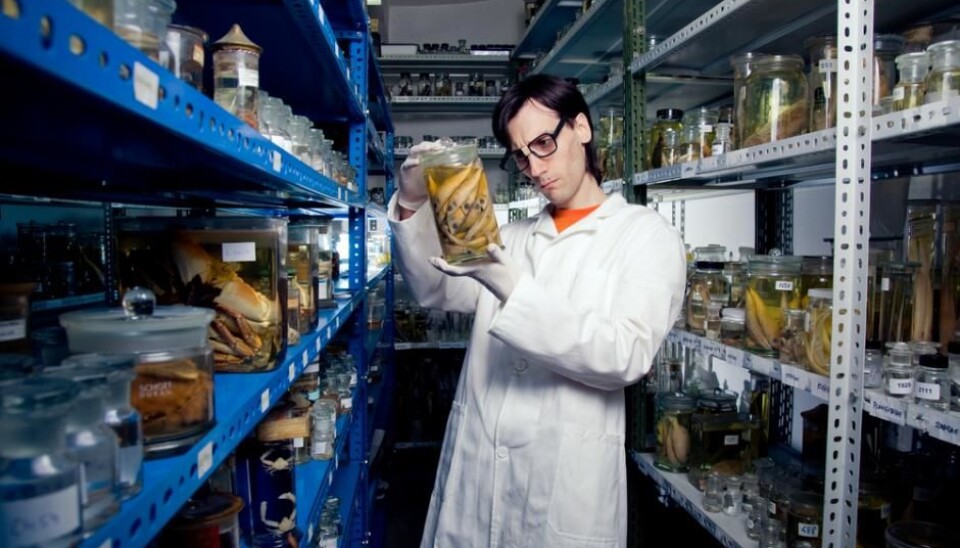
Sceptics claim no evidence of endocrine disruptors harming people
There is insufficient evidence that endocrine disrupting chemicals are harmful for people, says a group of scientists. But this view goes against mainstream scientific opinion.
“Those who shout the loudest and say that endocrine disrupting chemicals (EDCs) are harmful get the easy headlines. But they lack evidence for any effect of these chemicals on people.”
So says Professor Steen Honoré Hansen, from the Department of Pharmacy and Analytical Biosciences at the University of Copenhagen, Denmark.
He is one of 73 scientists who in 2013 expressed their scepticism over the effects of EDCs in an open letter to the European Commission.
“The currently drafted EU framework for EDCs […] is based on a very small number of publications that lack the required scientific robustness needed for such an important piece of legislation,” they wrote in the letter.
The test methods are inadequate, says Hansen, who has polemic criticism for what he describes as a lack of scientific evidence for the harmful effects of EDCs.
“Animal trials are not enough”
For ethical reasons, it is not possible to test potential endocrine disrupting chemicals on people. Animal trial on rats, mice, and zebra fish are used instead.
But the results of animal trials inadequately document the effects in people, says Hansen.
“Animal trials can give some indications and hunches, but it’s not enough as a basis for legislation. There’s no evidence that the chemicals work in the same way in animals as they do in humans,” he says.
Fear of EDCs are exaggerated
Hansen thinks that fear of the chemical substances has been exaggerated.
According to him, the alternative of not using EDC-containing preservatives in, for example, cosmetics, is far worse than the possible effects the EDCs can have on our hormones.
“Preservatives are necessary because without them cosmetics spoil due to growth of fungus and bacteria that can cause lethal infections. What’s worse? That people die because you don’t use preservatives—or that some people’s hormones are affected 100 years from now?” he says.
“We face a huge problem”
But far from all agree with Hansen.
Many others report that a large proportion of the experts in the field agree that EDCs are a contributing factor to a range of diseases.
In 2013, 38 scientists responded to the criticism in another open letter. More recently in 2016, 100 scientists jointly rang the alarm for hormone-related diseases in an open letter to the European Commission.
“Never before have we faced a higher burden of hormonal diseases, such as cancers of the breast, testes, ovaries and prostate, compromised brain development, diabetes, obesity, non-descending testes, malformations of the penis, and poor semen quality,” wrote the scientists in their response.
This group of scientists are in no doubt that these chemicals play a role in the development of these diseases.
“The overwhelming majority of scientists actively engaged in researching the causes of these worrying health trends agree that several factors are involved, among them chemicals capable of interfering with our hormone systems.” they wrote.
No “smoking gun”
Among the group of scientists who signed the open letter against EDCs is Professor Niels Erik Skakkebæk from the Department of Growth and Reproduction at Rigshospitalet, University of Copenhagen.
It is problematic that we cannot directly test the effect of EDCs in human trials, says Skakkebæk. But there is still a wealth of data from animal trials that give solid indications of the harmful effects of EDCs in people.
“I think that we underestimate animal trials that clearly show signs of harmful impacts on fertility or cancer, but I agree that it’s not a “smoking gun” because we can’t test it on people,” he says.
According to Skakkebæk, the debate on EDCs is similar to that of climate change, where sceptics deny facts on the planet’s condition. Or the debate surrounding the harmful effects of smoking, which ran for many years before it was accepted that smoking harms our health.
“Therefore we must work with these associations, as we do now. More indications make us more certain of the causality between disease and EDCs,” he says.
Professor Anders Juul, who is the director of the Department of Growth and Reproduction at Rigshospitalet, agrees.
“I’ve no doubt that EDCs can be dangerous and lead to a range of diseases—but there will always be sceptics,” he says.
------------------------
Read more in the Danish version of the story on Videnskab.dk
Translated by: Catherine Jex
Scientific links
- Open letter from 73 scientists skeptical of the harmful impacts of EDCs in people (2013)
- Open letter from 100 scientists arguing that EDCs are harmful (2016).






